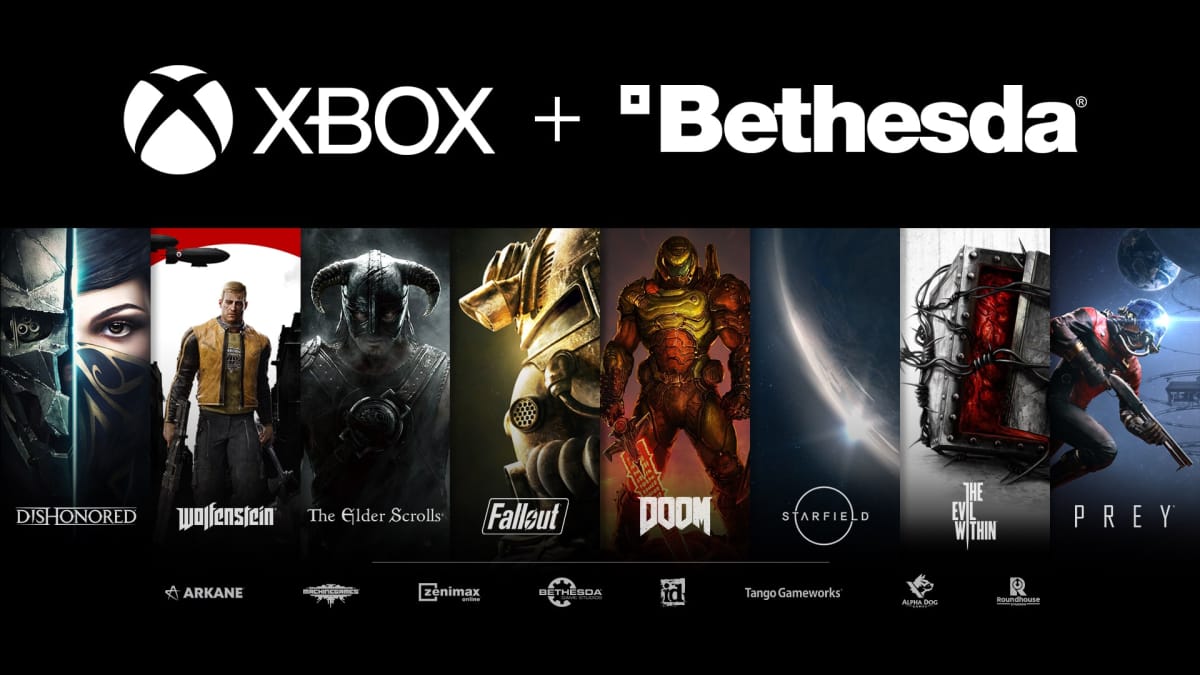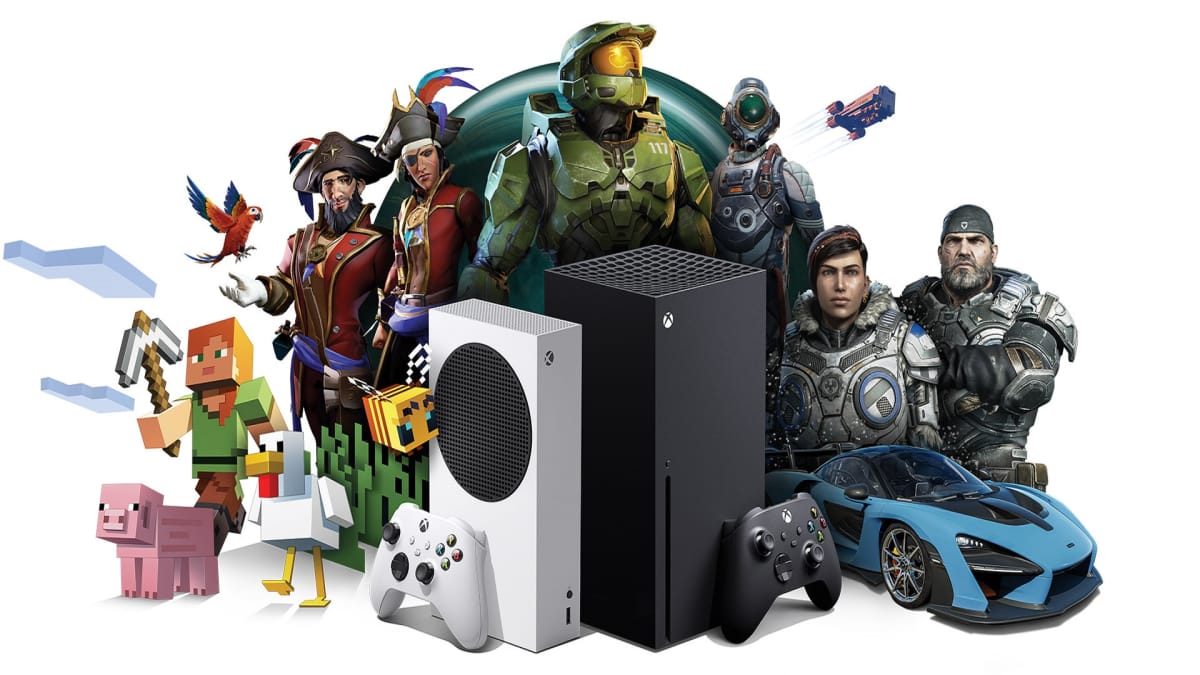With the recent acquisition of ZeniMax Media (Bethesda) and decidedly aggressive expansions into the PC and mobile market with Game Pass and xCloud, it's beyond obvious that Microsoft is looking to make the Xbox brand synonymous with gaming. Naturally, every gaming company wants their brand to be the first thing that people think of when it comes to gaming, but with rumors abound that Microsoft might purchase Discord, it may be a rather literal goal. Of course, it should be pointed out that rumors are still rumors, and whether or not Discord actually ends up as a part of Microsoft remains to be seen. Still, it does bring up the legitimate question of what a gaming monopoly could look like.
Most people should be familiar with the basic concept of a monopoly. Beyond being a popular board game, a monopoly is when a single company becomes such a dominant force in a particular area of the market that there is no effective competition. Some of the most popular historical examples of monopolies come from the early 20th century, revolving around things like steel, oil, coal, railroads, and tobacco, just to name a few. The names of a new age of barons like Rockefeller and Carnegie rose to prominence at this time, legacies built upon the literal blood and sweat of exploited workers. This era also infamously gave rise to things like scrip, company towns, and the Pinkertons, all designed to maximize the profits of companies no matter what. Various laws have been implemented since then that were intended to curtail and prevent the formation of monopolies (dubbed antitrust laws in the U.S.), though their effectiveness in the digital age are debatable.
Coincidentally, Microsoft was accused of violating antitrust laws in the early 2000s by both the United States and the European Union. Documents in the U.S. case claimed that Microsoft basically operated on an "Embrace, extend, extinguish" policy. Among other things, Microsoft was accused of monitoring Intel to ensure that they couldn't display public support for Netscape "to the point of regulating Intel’s internal browser use," "extend [HTML] to the point where it was incompatible with the Netscape browser and encourage people to develop to their version of HTML so that pages couldn’t be read with Netscape’s browser," and "smother" Netscape by basically giving away free web browsers. The EU case was practically identical, where Microsoft was accused of further competition-smothering practices.
With that in mind, a potential Discord buyout certainly seems like another step in Microsoft's quest to world domination. Best-case scenario is that Microsoft is simply looking for a versatile voice-chat system that has maximum cross-platform compatibility. It would make sense given how Xbox Game Pass is already available on both PC and console, plus the push towards mobile devices with xCloud. It's not like cross-platform play is going to go away anytime soon, and as work-from-home opportunities increase so too will the demand for voice-chat software. It's a win-win for everyone, unless you coincidentally want to create a competing voice-chat platform.
The worst-case scenario is that Microsoft is looking to establish a de facto gaming monopoly by gobbling up everything that's popular in gaming and putting it under the Xbox brand. Imagine having to buy a Xbox Live membership if you wanted to use Discord, or being told that you can't use Discord on a certain platform because Microsoft and some other company is having a spat. It's not like a gaming monopoly would end at Discord either. With how affordable it is, Xbox Game Pass could theoretically establish a pseudo-monopoly as well. After all, if you're a game publisher or developer and Microsoft is offering you both money and a player base that is incredibly willing to try anything you put on Game Pass, why would you opt to do business with Sony or Valve when it's far riskier? If you're on the consumer side of things, once Microsoft puts every game under Game Pass, what's stopping them from jacking up the price of a subscription? It's not like you're going to buy a PlayStation 7 so you can buy one of three games at $100 each.

That being said, such a doomsday scenario seems highly implausible at best. Simply take a look at Mixer's ill-fated attempt to challenge Twitch. Microsoft threw incredible amounts of money at Mixer, but at the end of the day it didn't matter because the audience didn't really budge. The reasoning behind this is quite simple. If games were a resource, then it would be the most elastic resource of all time. At any moment, a single person can become the next big name in the gaming industry. It's not like the coal or oil industry where there's a limited amount of the stuff in the world. At the same time, the barrier to entry is relatively low, as evidenced by the continued existence of streamers, modders, and indie developers. Plus it's not like the gaming audience is a logically predictable bunch. Half of them can hate a game that the other half loves out of pure spite, and there's plenty of pettier examples.
On the other hand, one can certainly argue that the big four (Xbox, Valve, Nintendo, and PlayStation) have a monopolistic hold on their slice of the pie. Subscription prices can be raised, games can be delisted, and customer service can be terminated, and there's not much that anyone can do about it because these four companies basically control what goes on in the gaming world. In that sense, there already is a gaming monopoly, or more accurately, an oligopoly. On the bright side, this presumably makes it ridiculously difficult for any one entity to truly control all of gaming. Furthermore, publishers, developers, and even consumers still have some power in this relationship as they are ultimately the ones who keep the industry afloat. Without the games themselves, no one would play, and if no one plays, then you may as well say goodbye to your gaming empire. Let's not forget the fact that many have multiple gaming systems and that people can switch from one brand to another with relative ease.
Indeed, while the dangers of a gaming monopoly are worth keeping in mind, Facebook, Amazon, and Disney's hold on their respective markets are far closer to being traditional monopolies than anything that can be accomplished by any major player in the gaming industry. This doesn't mean that you shouldn't have concerns about Microsoft buying Discord, but at the same time, it's a bit early to say that this singular purchase is the end of the gaming world. If nothing else, the fact that players with deep pockets can still fail in the gaming industry (i.e. Google Stadia) should be somewhat comforting if not outright satisfying for those who want to see massive companies take a loss.
And that is why Monopoly is a terrible board game/educational tool for children.
Have a tip, or want to point out something we missed? Leave a Comment or e-mail us at tips@techraptor.net













